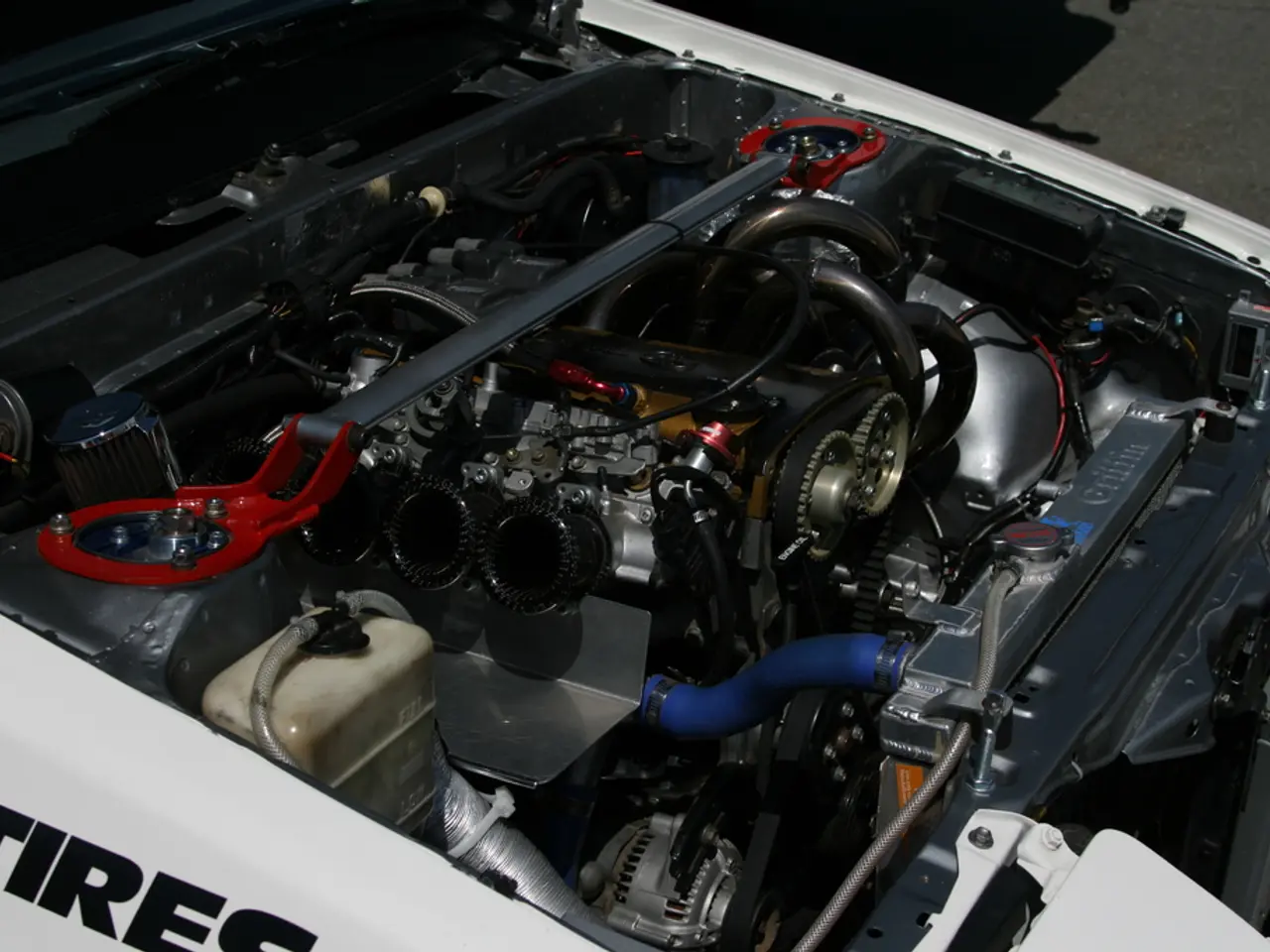Hamburg's TU and Weiss Technik team up for eco-friendly battery production
In the heart of Germany, the Hamburgische Investitions- und Förderbank (IFB) Hamburg is playing a significant role in driving sustainable battery production forward. The funding institution, based in the city of Hamburg, is not directly involved in the manufacturing or production of batteries, but it provides crucial support to projects that are shaping the future of battery technology.
One such project is the joint research initiative "EcoBat," a collaboration between the Technical University of Hamburg-Harburg (TUHH) and Weiss Technik. The company BASF is investing approximately one million euros into this innovative project, with Weiss Technik contributing around the same amount. The goal is to develop an efficient, eco-friendly process for lithium-ion battery production.
The project aims to create an extremely dry production atmosphere for lithium-ion batteries, which would lead to increased efficiency, capacity, and reduced energy consumption. This is particularly important as the demand for dry rooms in gigafactories is enormous due to their size, requiring hundreds of thousands of cubic meters of dry air per hour.
The technology, expected to be market-ready by 2027, is being funded with €579,000 by IFB Hamburg. The feasibility study shows that energy consumption for lithium-ion battery production could be reduced by up to 77% and CO2 emissions could be reduced by around 106,000 tons per year.
IFB Hamburg's role extends beyond battery production. The institution supports a wide range of projects, including housing and economic development, environmental protection, and innovation initiatives. It serves as a central point of contact for private individuals, companies, and institutions in Hamburg, offering advice on all funding offers from the city of Hamburg, the federal government, and the EU.
While IFB Hamburg is not directly involved in the Aurubis battery recycling pilot plant or the Northvolt battery gigafactory, it does support various projects related to sustainable battery technologies. The institution is also committed to strengthening Hamburg as a center for progressive battery technologies, as demonstrated by its support for the cooperation project in this field.
For more information about IFB Hamburg and its projects, visit www.ifbhh.de. The institution's focus may be on projects based in Hamburg, but it does not specifically state that it only funds projects within the city. IFB Hamburg's role is primarily to provide funding and advice for various projects, but it does not manufacture or produce any goods or services directly.
As the world moves towards a more sustainable future, the work of institutions like IFB Hamburg is crucial in driving innovation and supporting projects that reduce energy consumption and emissions, paving the way for a greener tomorrow.
Read also:
- Trump's Policies: Tariffs, AI, Surveillance, and Possible Martial Law
- Emergency rooms outperformed by infusion centers for improved results in patients experiencing acute pain episodes and sickle cell disease
- Urban Pacific in Miniature: Playa Renaciente as a Compact Cityscape
- Pediatricians Endorse Vaccinations, Contrary to Financial Gain Myth








